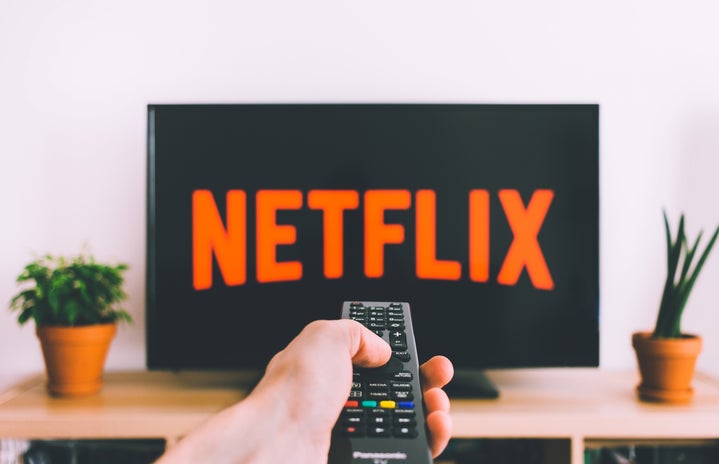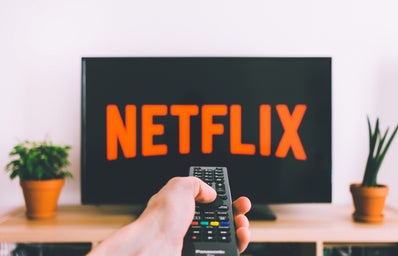In this social media savvy day and age, it does not take a lot of time or effort to become hyped up and labelled as revolutionary. In fact, all 13 Reasons Why had to do was include graphic rape and suicide scenes. It has been lauded for its presentation of suicide even though the suicide can be labelled as vengeful and mental health is something blatantly ignored throughout the series.
Long story short: Hannah Baker killed herself but before doing so she recorded thirteen tapes for people in her life who led her to to commit suicide.
The Netflix series 13 Reasons Why is based on the book of the same name written by Jay Asher. It follows Clay Jensen as he listens to thirteen tapes left behind by Hannah Baker, his will-they-won’t-they friend, who took her own life. Along his journey, Hannah’s acquaintance, Tony, ensures the tapes are passed on from person to person as per Hannah’s request.
The show essentially just follows Clay and his obnoxious headphones, with the glaring Beats by Dre logo, as he feebly attempts to be a social justice warrior for Hannah Baker. Hannah’s tapes cause chaos and disarray and every episode gradually builds suspense that never quite peaks.
That’s the gist. There are plenty of other minor subplots (legal battles, typical high school drama, parental discord), but this is all you really need to know to grasp the story.
While 13 Reasons Why could be lauded for drawing attention to the serious issues and impacts of both suicide and rape, the series itself is incredibly weak. Each of the 13 episodes in the show features a similar plot: a dead girl’s voice recounting a situation which was traumatic for her, Clay receiving threats from other students on the tapes who do not want him to pass them on, Tony following Clay, Clay staring at people and asking them what’s on the tapes where they always answer, “Just listen to the tapes,” and that nasty scar on Clay’s forehead.
The lack of establishment of Hannah Baker as a character is a major issue. We only get to know her through crappy things that have happened to her, which depicts her as a kicked puppy who continues to be kicked and sometimes puts herself in situations where she knows she will be kicked. The viewer feels pity or annoyance towards her and not much beyond that. Her internal struggle and battle with mental health is hidden behind the blame game, flashbacks and guilt trips.
Even Clay is not well established. Do we really know anything about Clay outside of his apparent affections for Hannah Baker, his reserved and frustrating personality, his love for riding his bike and his minor mommy issues? Hardly. There is no attachment to or deep development of the show’s characters and the only feelings the viewer is capable of having towards them are pity, apathy or anger.
I wanted to feel for Hannah Baker and her story. I wanted to understand the characters and the situations and, yet, the most established character who earned the most affection from fans is a minor one: Jeff Atkins. You know there is an issue with character establishment when the only genuinely likable character is one who is barely onscreen.
While some argue that Hannah Baker is simply making those who have hurt her to hold accountability for their wrongdoings, others like myself argue that she is seeking something more malicious. If Hannah Baker was seeking accountability, she could have left a tape for each individual without the requirement he or she pass it on.
If she wanted individuals to know what they did and how it impacted her, why did she have each person listen to every single tape and pass them on? If she wants Jessica to know what Jessica did wrong, why must Jessica listen to what all of the other people did wrong, too? This is not seeking accountability, this is wanting to have others villainized, whether they deserve it or not. Her suicide becomes an act of revenge, which emotionally distances the viewer from the true issue at stake.
If we are talking accountability, we ought to call to attention Hannah Baker’s lack of self-awareness. She blatantly blames her suicide and own mental health issues on the actions and inactions of others which portrays a misconstrued view of mental health in its entirety.
It is absolutely true that others can impact one’s mental health, but it seems as though Hannah Baker had underlying issues that were never acknowledged or brought to light, which seems to shine a spotlight on the false idea that mental health is merely problems caused by other people. It isn’t always–it can also be internal and it’s not up to one’s social circle to play Sherlock Holmes.
We are in a self-absorbed society where one can’t expect everyone around them to pick up on his or her symptoms of depression and be a hero. The show portrays the idea that those around her could have stopped Hannah Baker from becoming depressed and committing suicide, an idea that is dangerous when it comes to the topic of suicide.
The series takes away the agency of Hannah Baker and it promotes the John Green-esque idea that others can save you and you shouldn’t even bother trying to save yourself. Depression to the point of suicide is something that cannot be solely caused by actions of others–mental state plays a role that’s been ignored in this series.
The only point where Hannah Baker actively and openly seeks help is a half-hearted attempt with an incompetent guidance counsellor. This only fosters the attitude of helplessness and almost shows viewers, “See? No one, not even paid professionals, can help you when you’re depressed!”
Towards the end of the series she even blames Clay for not taking more action to help her, which is entirely unfair. Hannah Baker spends the entire series playing the blame game rather than opening up the dialogue about mental health. Mental health is thrown to the back burner while suicide becomes the star. The discussion of those topics should not be mutually exclusive and yet they seem to be.
The show takes a lot of liberties when adapting the book and adds so many unnecessary subplots and new characters to the point where it’s hard to actually become invested in the story. It attempts to add layers through extra plot lines but ultimately fails because the characters in these plots are poorly established.
Okay, 13 Reasons Why is opening the conversation about suicide and rape. Hoorah, social justice. Meanwhile, it’s misrepresenting mental health and, in a way, glorifying revenge suicide. Other than that, it’s just your average crappy teen drama with far too many scenes of Clay staring and a tragic protagonist who has been so poorly executed to the point where she appears villainous.
I’m not usually one of those people who argues the book is always better than the movie, but in the case of 13 Reasons Why, the book is on a whole other level and is a much better choice and less of a time commitment than this 13 part series.

